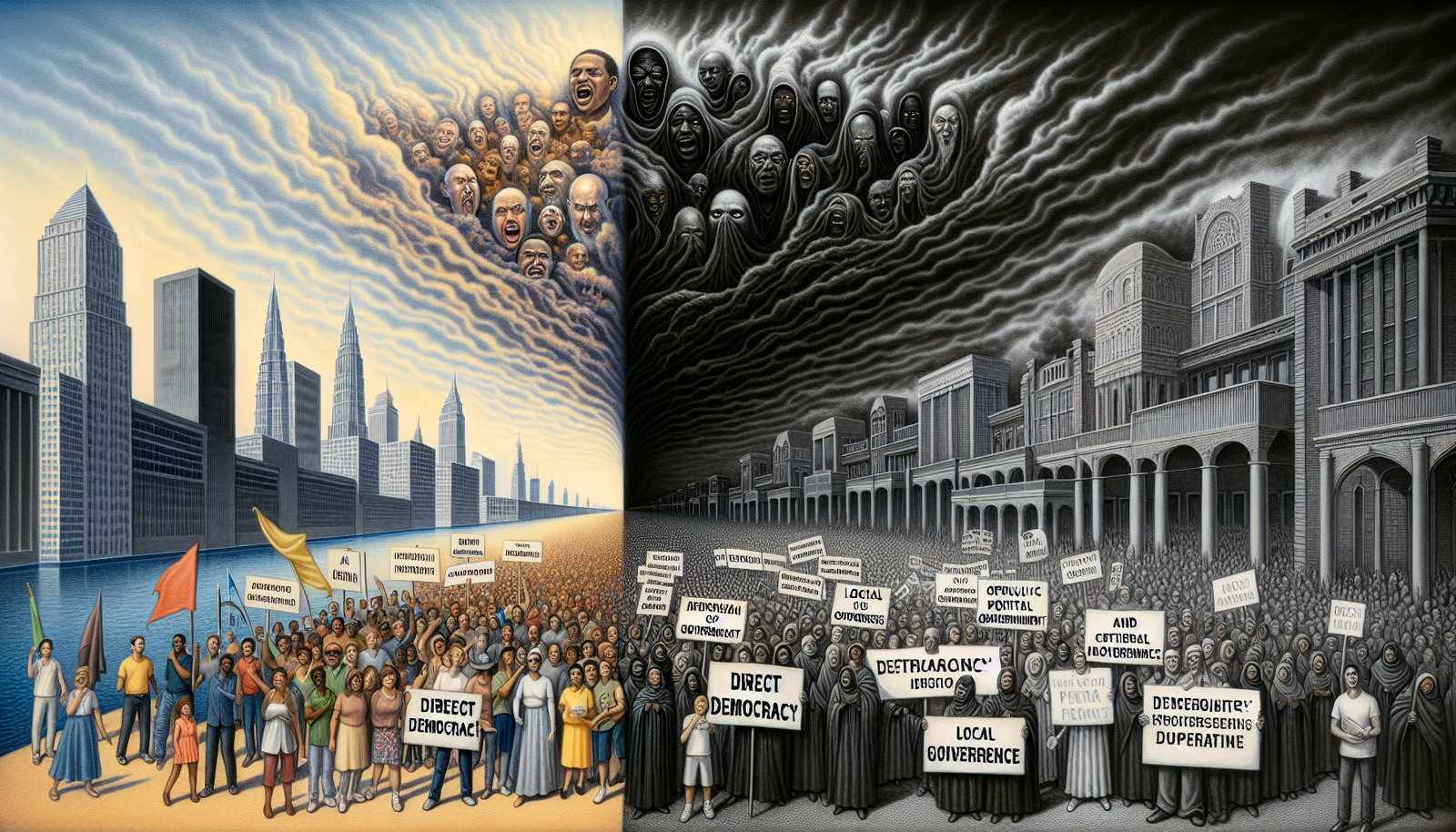
Direct Democracy Crisis: Soros’ Dystopian Vision Infiltrates Conservative States
In recent years, the influence of billionaire philanthropist George Soros on American politics has stirred considerable controversy, particularly when it comes to his backing of progressive initiatives in traditionally conservative—or red—states. As his vision of direct democracy gains traction, critics warn of a crisis that could redefine the political and social landscape across these regions.
George Soros’ Political Influence
Soros has long been a polarizing figure in U.S. politics, championing progressive causes that proponents argue enhance democracy but opponents argue undermine traditional values. His financial support for various political campaign initiatives has raised flags for many conservatives, who argue that his agenda represents a direct threat to the stability of local governments and law enforcement.
The Impact of Direct Democracy Initiatives
The growing trend of direct democracy—where citizens vote on specific policy measures instead of solely electing representatives—has prompted deep concern among conservative circles. Critics argue that Soros-backed initiatives encourage impulsive decision-making by the electorate, leading to unintended and potentially detrimental consequences. This is often cited in discussions around the implications of ballot initiatives that may serve to sidestep established legislative processes.
A Dystopian Agenda?
The characterization of Soros’ influence as part of a dystopian agenda reflects fears that his initiatives might lead to societal breakdown. Opponents contend that the policies supported by Soros correlate with rising crime rates and social unrest in urban areas, especially where his preferred prosecutors and policies are put in place. This narrative asserts that leftist governance, underpinned by Soros’ funding, contributes to a breakdown in public safety and community stability.
Local Prosecutors and Public Safety
Many fear that the Soros-backed prosecutors, often dubbed rogue prosecutors, are exacerbating crime rates in their respective cities. These Progressive District Attorneys prioritize rehabilitation over strict law enforcement, a policy shift that critics claim has led to surging crime and greater public anxiety. The narrative paints a picture of out-of-touch governance where the influence of a billionaire instigates policy changes that stray dangerously from the will and needs of the local populace.
Shifting the Political Narrative
With a backdrop of polarized perception, there is a concerted effort among conservative commentators and political leaders to counter what they perceive as misleading studies around criminal justice and social policy. By framing Soros’ influence under a starkly critical lens, the discussion pivots towards a larger narrative questioning the viability and impact of progressive policies on American society, particularly in regions experiencing rapid change due to external influences.
As the political landscape continues to evolve, the ongoing discourse surrounding Soros’ role and the concept of direct democracy in conservative states remains intense. The stakes appear to be high, with implications that could reshape the very fabric of American governance and civic engagement.
